Search
Remove Ads
Advertisement
Summary 
Loading AI-generated summary based on World History Encyclopedia articles ...
Search Results
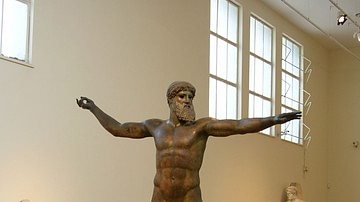
Image
Zeus or Poseidon from Cape Artemisium
A bronze statue of Poseidon (or Zeus) from Cape Artemisium (460 BCE), National Archaeological Museum, Athens.

Definition
Artemisia I of Caria
Artemisia I of Caria (l. 480 BCE) was the queen of the Anatolian region of Caria (south of ancient Lydia, in modern-day Turkey). She is most famous for her role in the naval Battle of Salamis in 480 BCE in which she fought for the Persians...

Definition
Xerxes I
Xerxes I (l. 519-465, r. 486-465 BCE), also known as Xerxes the Great, was the king of the Persian Achaemenid Empire. His official title was Shahanshah which, though usually translated as `emperor', actually means `king of kings'. He is identified...
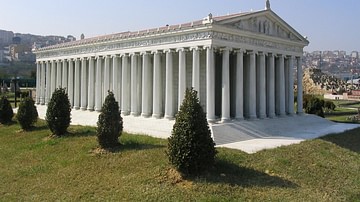
Definition
Temple of Artemis at Ephesus
The Temple of Artemis at Ephesus was located on the western coast of Asia Minor (modern Turkey) and built in the 6th century BCE. Such was its tremendous size, double the dimensions of other Greek temples including the Parthenon, that it...
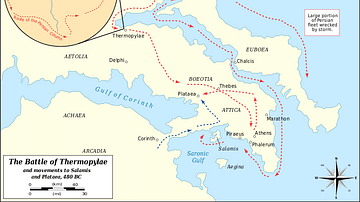
Definition
Battle of Thermopylae
Thermopylae is a mountain pass near the sea in northern Greece which was the site of several battles in antiquity, the most famous being that between Persians and Greeks in August 480 BCE. Despite being greatly inferior in numbers, the Greeks...
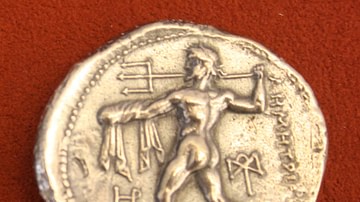
Definition
Poseidon
Poseidon was the Greek god of the sea and rivers, creator of storms and floods, and the bringer of earthquakes and destruction. He was perhaps the most disruptive of all the ancient gods but he was not always a negative force. He was a protector...
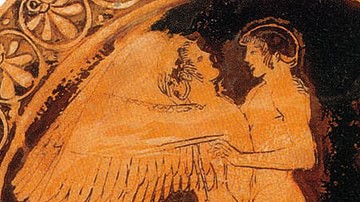
Definition
Zephyrus
Zephyrus was the god of the west wind and the messenger of spring in Greek mythology. He was known as one of the four Anemoi, or wind gods, each of whom represented a cardinal direction and, except for Eurus, a season. Zephyrus was often...

Image
Model of the Temple of Artemis
Model of the Temple of Artemis, Miniature Park, Istanbul, Turkey.
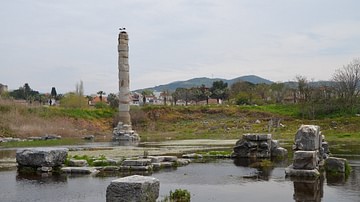
Image
Temple of Artemis, Ephesus
The lonely reconstructed column standing on the site of the Temple of Artemis at Ephesus. The Temple of Artemis, also known as the Artemesium, was constructed in the mid 6th century BCE and was considered to be one of the Seven Wonders of...
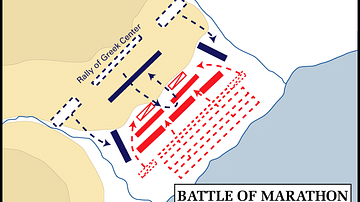
Definition
Battle of Marathon
The Battle on the plain of Marathon in September 490 BCE between Greeks and the invading forces of Persian king Darius I (r. 522-486 BCE) was a victory that would go down in folklore as the moment the Greek city-states showed the world their...